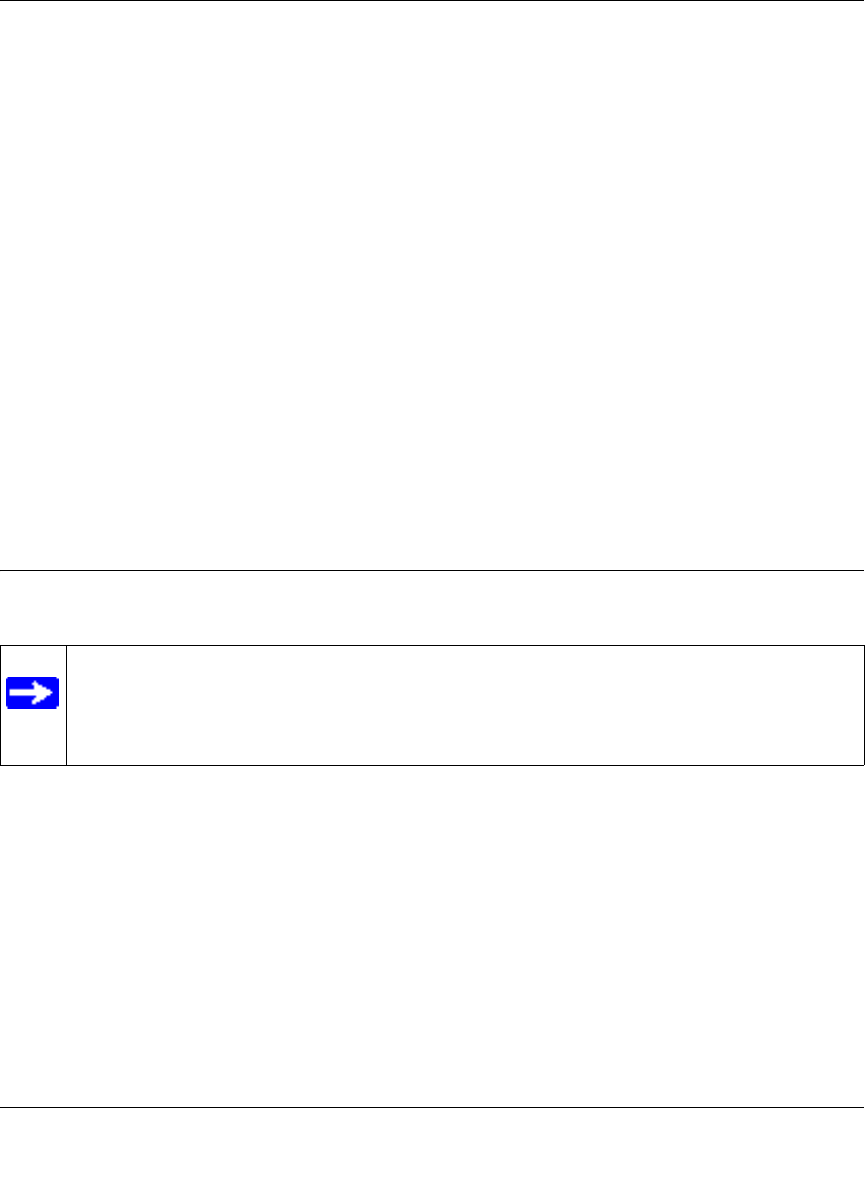
NETGEAR Router Setup Manual
Doing Basic Router Housekeeping 5-3
August 2004
To restore your settings from a saved configuration file, enter the full path to the file on your PC or
click the Browse button to browse to the file. When you have located it, click the Restore button to
send the file to the router. The router will then reboot automatically.
Warning: Do not interrupt the reboot process.
Erasing the Configuration
It is sometimes desirable to restore the router to original default settings. This can be done by using
the Erase function, which will restore all factory settings. After an erase, the router's password will
be password, the LAN IP address will be 192.168.0.1, and the router's DHCP client will be
enabled.
To erase the configuration, click the Erase button.
To restore the factory default configuration settings without knowing the login password or IP
address, you must use the Default Reset button on the rear panel of the router. See “Restoring the
Default Configuration and Password” on page 6-7.
Upgrading the Router Software
The routing software of the router is stored in FLASH memory, and can be upgraded as new
software is released by NETGEAR. Upgrade files can be downloaded from the NETGEAR Web
site. If the upgrade file is compressed (.ZIP file), you must first extract the file before sending it to
the router. The upgrade file can be sent to the router using your browser.
Note: The Web browser used to upload new firmware into the router must support HTTP uploads.
NETGEAR recommends using Microsoft Internet Explorer or Netscape Navigator 3.0 or above.
From the Main Menu of the browser interface, under the Maintenance heading, select the Router
Upgrade link display the menu shown below.
Note: Before upgrading the router software, use the router backup utility to save your
configuration settings. Any router upgrade will revert the router settings back to the
factory defaults. After completing the upgrade, you can restore your settings from the
backup.
